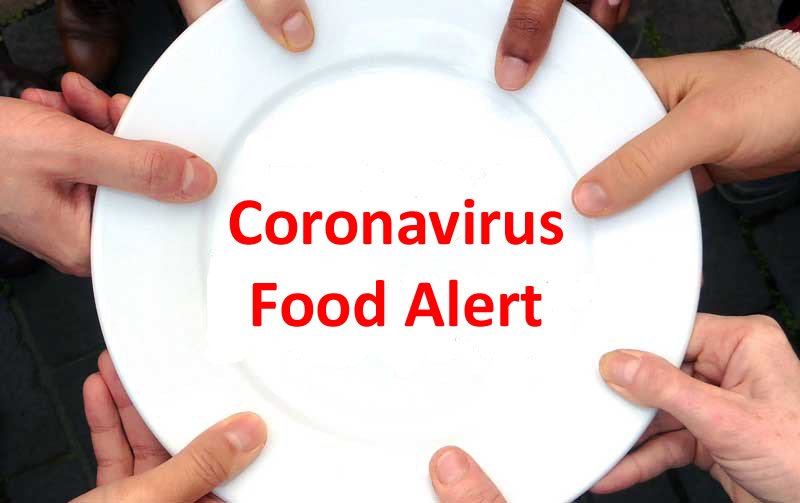

Ten things government must do to secure our food supply in Covid-19 lockdown
The Sustain alliance of food and farming organisations is calling on Government and local authorities to take urgent action to secure the nation’s food supply, as we experience tighter restrictions and lockdown across the UK, with Christmas and then a potentially chaotic Brexit following in quick succession.
Kath Dalmeny, chief executive of the Sustain alliance, which supported farmers, food enterprises, communities and local authorities with the emergency food response during the first national lockdown, said:
“For millions of people, the coronavirus pandemic has been both a medical and a food emergency. Food industry groups and poverty organisations are warning us of imminent large-scale job losses, threats to school and hospital food supply, and concerns about millions of children and isolated older people going hungry. As we enter the second lockdown, and with Christmas and a potentially chaotic Brexit on the horizon, we must learn our lessons from the first lockdown, by redoubling our efforts to ensure that everyone can access the food they need and no child goes hungry.”
Sustain has highlighted ten things that the UK Government must do to secure our food supply in Covid-19 lockdown beyond:
- Do not let children go hungry
- Guarantee that older and disabled people will have access to good food
- Lift the ban on helping people with ‘no recourse to public funds’
- Ensure local authorities have sufficient money to provide a food a cash-first safety net for people to afford healthy food
- Support food markets to keep trading
- Keep community food gardens open
- Help farmers, fishers and food businesses to thrive
- Ensure school, hospital and care home kitchens stay well stocked
- Publish an official food supply risk assessment and food plan
- Be open about the food challenges facing us
Do not let children go hungry
Before Covid-19 an estimated 30% of children were living in poverty – equivalent to around 9 in every class of 30. Since the start of the pandemic, the numbers of children registered for free school meals is estimated to have risen by 900,000 to around 2.6 million across the UK, with more children now at risk of hunger due to low family income and job losses. Government should guarantee decent income for people with the least money and take the lead from the National Food Strategy and Premier League footballer Marcus Rashford by extending free school meals, increasing the uptake of Healthy Start vouchers and holiday activity and food programmes. Government must also make sure that all families have sufficient money and food over Christmas, and until Easter 2021. This would help all children stay well fed during term time and school holidays alike. Councils and local partners should include Healthy Start forms with food parcels and meals going to eligible families.
Guarantee that older and disabled people will have access to good food
More than 1.3 million people over the age of 65 are malnourished, and older and disabled people are more at risk from Covid-19 and from isolation that makes it hard to access food. During the first lockdown, 4.8 million government food parcels were delivered to people needing to shield. Yet no such food provision is planned for the second lockdown. Government and local authorities need to rapidly expand or reinstate meals-on-wheels services that have been in steep decline over recent years, supporting existing providers. They should also work with local authorities to make good use of assets such as school, restaurant and hotel kitchens and food social enterprises; twinned with experienced chefs, catering and delivery staff desperately in need of good jobs as the hospitality sector struggles to survive.
Lift the ban on helping people with ‘no recourse to public funds’
Tens of thousands of people in the UK cannot access publicly funded support due to the technical immigration status ‘no recourse to public funds’. This leaves many to go hungry. Government needs to lift the ban on people getting such support and make special efforts to make sure they are reached through the national benefits system and local authority welfare schemes.
Ensure local authorities have sufficient money to provide a food a cash-first safety net for people to afford healthy food.
In England, Government allocated £63 million to local authorities in June 2020, to help cover three months’ worth of costs for providing welfare assistance and other everyday essentials – including food – for people struggling to get by. This money is now pretty much spent. Local authorities need more money to help provide food and other support for children, low-income households, homeless people, and older and disabled people in their areas.
Support food markets to keep trading
When the first Covid-19 lockdown started, many local authorities and landowners shut down markets, unnecessarily disrupting essential food supplies. Let’s not make the same mistake again. Pioneering markets quickly developed Covid-safe ways of keeping open, which meant others could more confidently re-open, supporting local jobs and ensuring that diverse communities had easy access to fresh, affordable food. Government should make it clear that food markets can stay open and reinforce existing guidance to help them do so.
Keep community food gardens open
Community gardens are essential spaces for people to get healthy outdoor exercise, spend time in green space and grow fresh food for themselves and their neighbours. Government should make it clear that, if managed safely, community food gardens should stay open.
Help farmers, fishers and food businesses to thrive
During the first lockdown, the Government gave over £0.5 billion of public money in England to the very largest supermarkets and distributors, via contracts for free school meal vouchers (£384m) and food boxes for people who were shielding (£208m). In this second lockdown, attention and support needs to be prioritised for farmers, fishers and smaller food businesses to help them keep the supply of food and essential ingredients flowing, and grants, promotion and other support to stay open and trade safely.
Ensure school, hospital and care home kitchens stay well stocked
Wholesalers and the food supply industry warned government in September 2020 that the “body blow” of Covid-19 means that 90% of wholesalers are considering large-scale redundancies by the end of the year. The Government needs to provide targeted financial support to keep essential food supplies flowing. The further disruption to our food supply associated with a chaotic Brexit at the end of December 2020 would – according to these industry bodies – make matters even worse.
Publish an official food supply risk assessment and food plan
In 2019, the Government’s Yellowhammer risk assessment made headlines with warnings of food supply disruption in the event of a chaotic Brexit. Citizens, voluntary groups, local authorities and food businesses need to understand the threats to our food supply from Covid and a chaotic Brexit and how we can best work together to address these.
Be open about the food challenges facing us
Government needs to be open about the food challenges facing us, so we all know what we’re up against and can plan accordingly. Covid should have taught us that cross-sector cooperation is the best strategy in the face of common challenge. Coordinated action by so many people and organisations means that honesty and transparency about the food challenges facing us are essential but have so far - unfortunately - been in short supply.
Coronavirus Food Alert: Sustain's work on food resilience in the COVID-19 coronavirus pandemic.We are helping secure food for vulnerable people and supporting local emergency responses.
Sustain
The Green House
244-254 Cambridge Heath Road
London E2 9DA
020 3559 6777
sustain@sustainweb.org
Sustain advocates food and agriculture policies and practices that enhance the health and welfare of people and animals, improve the working and living environment, promote equity and enrich society and culture.
© Sustain 2026
Registered charity (no. 1018643)
Data privacy & cookies
Icons by Icons8







